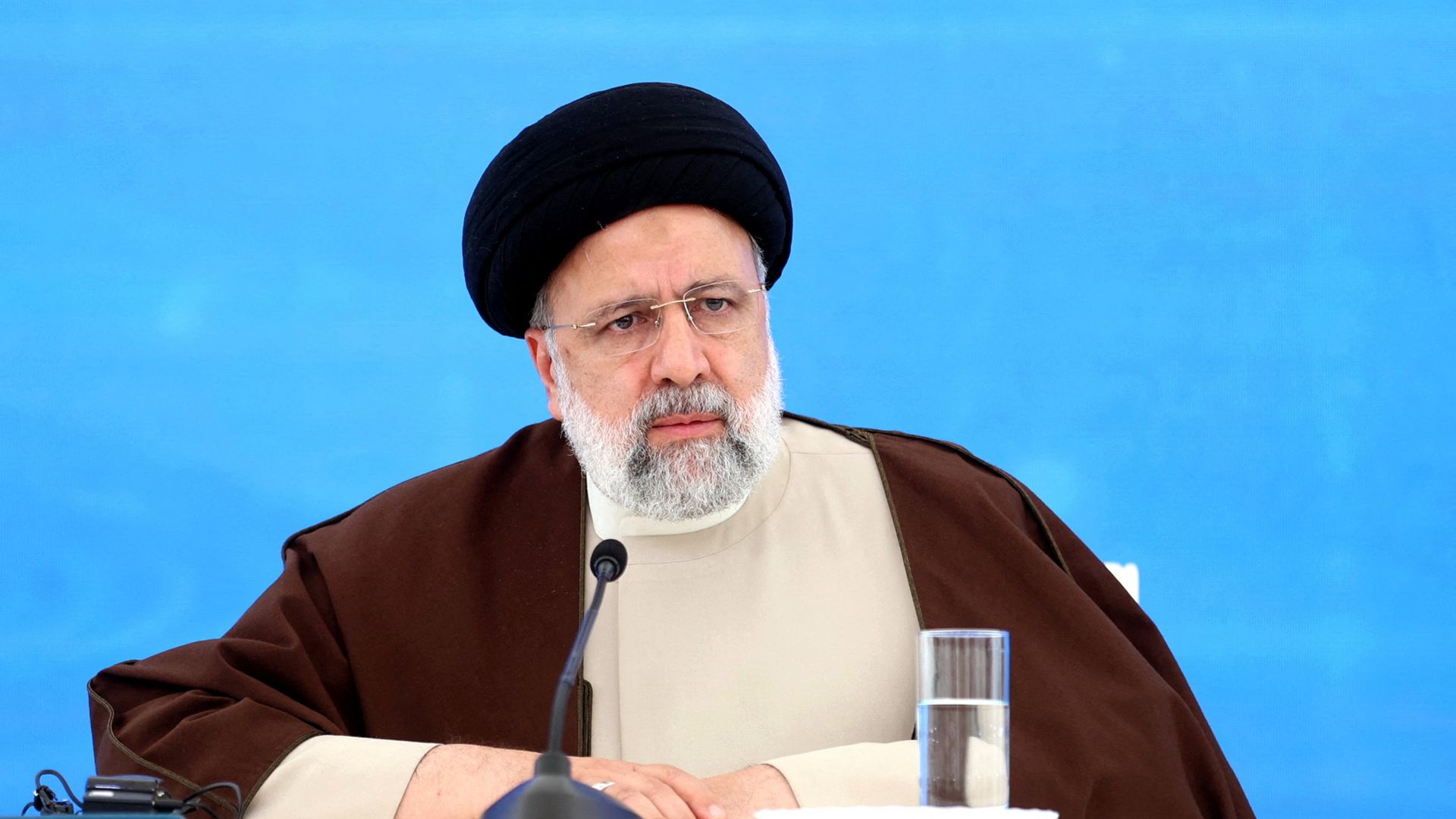Iranian protesters have expressed “joy” over the death of President Ebrahim Raisi who was dubbed the “Butcher of Tehran”.
Speaking to Sky News’ The World With Yalda Hakim, three Iranians spoke on the condition of anonymity over fears of being tracked down by the country’s regime.
A protest leader – who is currently in hiding – suggested Sunday’s crash, that also killed Iran’s foreign minister, was “pre-planned”.
Please use Chrome browser for a more accessible video player
“We may not be across everything, but it’s been a known fact for a long time that Raisi was a serious contender to replace the Supreme Leader Khamenei, and perhaps some didn’t want that to happen.
“But all in all, this was very good news.
“All I can say is that the only thing that has made me truly happy over the past five years has been the news of Raisi’s death.”
Mr Raisi’s time in charge included major protests over Mahsa Amini – the woman who died after she was arrested for allegedly not wearing her hijab properly.
The US said Mr Raisi had “blood on his hands” as the former hardline cleric was “a brutal participant in the repression of the Iranian people for nearly four decades”.
Iran also took the unprecedented decision in April to launch a drone and missile attack on Israel.
Please use Chrome browser for a more accessible video player
A 23-year-old student – who has taken part in a number of protests – said: “The death of Raisi has made the people of Iran very happy.
“On the streets, people were handing out sweets, they were smiling at each other.
“That’s the extent to which this news has spread joy amongst people.”
Read more:
Who was hardliner Iranian president Ebrahim Raisi?
‘Butcher of Tehran’ had fearsome reputation – many will fear instability
International affairs editor
From the voices speaking out on The World with Yalda Hakim from inside Iran there was a sense of celebration on the eve of the funeral of their dead president but also a sense of realism.
One dead president the fall of a regime does not make. That is the bitter truth for those brave Iranians speaking out and the millions of Iranians they represent. They detest a man who presided over a brutal crackdown on protests that saw hundreds killed on the streets, and thousands incarcerated, tortured, raped or killed after their arbitrary arrest.
But there are reasons for Iranians to find hope some hope in the news of the president’s death.
Analysts have compared the Iranian theocratic Islamic regime to the Soviet Union in its dying days.
It is ideologically bankrupt. Its people do not believe in what it stands for anymore. It is morally bankrupt too, after the brutal repression that crushed the Women, Life and Freedom protests. But it remains powerful, with many people on its payroll and it is hard to predict how or when it falls.
Iran’s people want one thing though, and its government the opposite, and that ultimately is impossible to sustain.
Raisi had a unique skill set. He was both a zealous idealogue and an ex-judge. A man who understood how both Iran’s judiciary and presidency works. He combined a passionate belief in the Iranian revolution with an expertise in how its regime operated.
It has been said many times in the last 24 hours that Ayatollah Khamenei, Iran’s supreme leader, will find another hardliner to replace him. There are plenty more where he came from.
But no one with quite his skills and expertise. That may not be important immediately but at the moment of greatest danger in the not so distant future when Khamenei dies it could make all the difference.
With no anointed successor, the supreme leader’s passing could usher in a period of instability and weakness for the regime. Raisi was seen as a potential successor but also a powerful stabilising force as president in that perilous hiatus, someone who could hold the ring while the new order is established and power struggles fought out.
Raisi’s death may well not mean immediate change for Iran but it could ultimately hasten its end.
A housewife, who was beaten up for taking parting in the “Woman, Life, Protest” movements, said: “The public hatred towards this regime is not a secret to anyone.
“Raisi’s death proved that the pain that this inflicted on our people will one day hit them back.
“My personal reaction to the death of Raisi… I was very happy.
“I’m not upset at all. Even though I never wish death on anyone, but this man, not only did he not do anything for our nation, but he ordered the death of countless young innocent people.”
Following news of Mr Raisi’s death, US State department spokesperson Matt Miller said the Iranian president “was involved in numerous horrific human rights abuses, including playing a key role in the extra judicial killing of thousands of political prisoners in 1988”.
“Some of the worst human rights abuses occurred during his tenure as president, especially the human rights abuses against the women and girls of Iran,” he added.
The US approach to Iran “will not change” because of Mr Raisi’s death, Mr Miller said.







